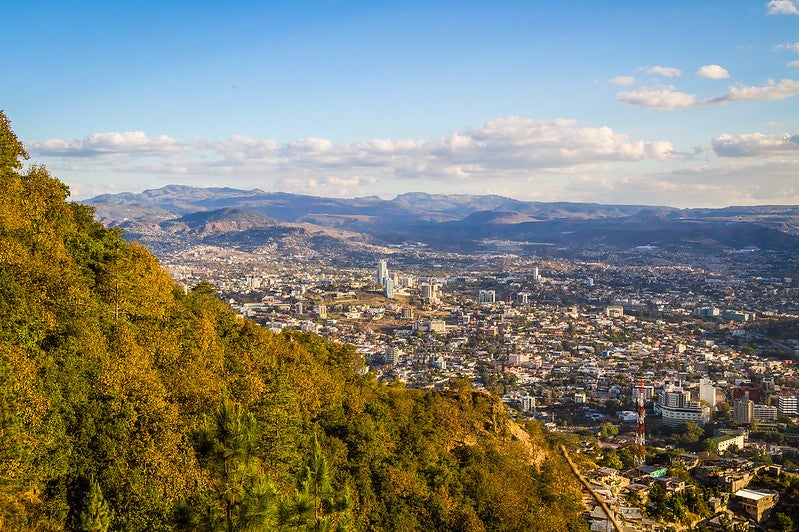We are in a global and systemic transformation. Global temperatures have already risen by 1.1 degree, and we are seeing intensified droughts and wildfires in the southern cone and more frequent and violent hurricanes in the Caribbean and Central America. At the same time, we are living in the sustainability revolution with impact and scale like the industrial revolution. Global investments in renewables are growing exponentially, with wind and solar now generating more than nuclear. The technological transition towards electromobility has begun, and land-use and agricultural production changes are not far behind.
Climate-related natural disasters have tripled in the last 50 years, with increasingly adverse effects on morbidity and mortality, ecosystems, and economies. Natural disasters can reduce GDP by up to 0.9 percent in lower-income countries. Repeated disasters in the Caribbean can destroy 3.6% of the GDP – and disasters fall upon the poorest and most vulnerable. Climate change will also drive the migration of 17 million people by 2050.
However, working on the opportunity towards low-carbon and climate-resilient economies brings multiple benefits. Let’s look at some of them:
Investing in adaptation and resilience is more cost-effective than responding to disasters: empirical evidence shows a cost-benefit ratio of four to seven dollars per dollar invested in prevention. Nevertheless, countries tend to prioritize emergency response. This may be because companies, small producers, and households do not always fully grasp climate risks. A mix of early warnings, contingency planning and financing, technology adoption, insurance, and migration from areas with untenable conditions can help manage the impact of natural disasters and extreme-weather shocks.
Decarbonization is the growth opportunity of the 21st century: the cost of decarbonization in LAC is outweighed by economic and social benefits. Projected benefits include 1% additional economic growth and the creation of 15 million net new jobs by 2030. For instance, wind and solar are now the cheapest and most abundant sources of energy available to mankind, and electric vehicles are competitive in some markets and their cost will continue to fall, while the price of fossil fuels is more volatile and depends on exogenous factors, as demonstrated by the effects of the COVID-19 pandemic and Russian war in Ukraine on oil and gas prices.
Long-term thinking and whole-of-government: the key challenge of climate governance is ensuring that actors in each economic sector have a clear understanding of how to achieve climate resilience and decarbonization goals, the main barriers to meeting these goals, and which interventions can remove these barriers. Key barriers to meeting climate goals are related to planning, regulation, price signals, information, capacity, and the political economy.
Redirect $470 billion to $1.3 trillion annually: financial flows from diverse public and private sources need to be redirected and aligned with net-zero emissions and climate-resilient development pathways. Achieving climate resilience and carbon neutrality in the region, consistent with the long-term goals of the Paris Agreement, will require incorporating climate change objectives into between 7% and 19% of countries’ GDPs’ worth of spending every year, up to US$1.3 trillion per year by 2030. This will require increasing total financial flows, but mainly redirecting existing flows to the region toward climate solutions.
Towards the IDB Annual Meeting
As a strategic partner of the region, the Inter-American Development Bank (IDB) will hold its annual meeting in Panama City from March 15 to 18. This official gathering is a forum for discussion among the institution’s Governors, most of whom are ministers of finance, presidents of central banks, or other high-level authorities of the member countries. Representatives of multilateral financial institutions, development agencies, and private banks also attend.
The conference consists of a rich program of activities, including seminars on various topics. There will be one on climate change to promote the exchange of experiences between Ministries of Finance and/or Economy and Environment and Academia and deepen discussions on the challenges and barriers, including access to finance and addressing future changes in fossil fuel use and demands in a decarbonized region. Moreover, it will showcase the recommendations on trends, technologies, and emerging issues where the private sector of Latin America and the can play a critical role in supporting the decarbonization and increased resiliency of the region.
Check out the other seminars here


Leave a Reply